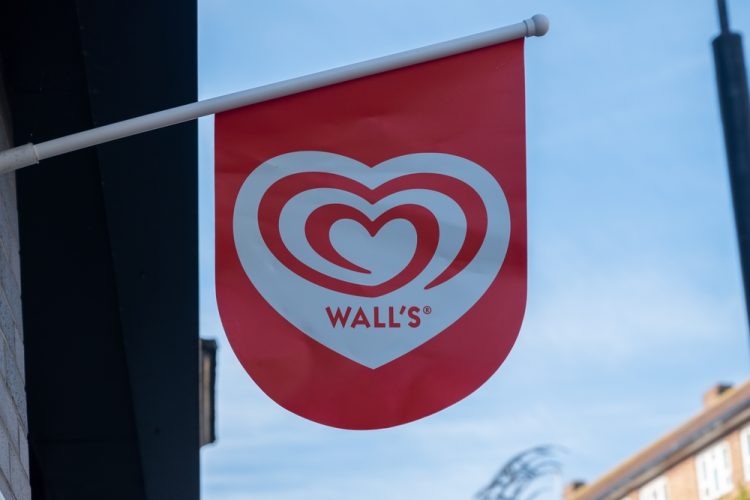Why the Walls ice cream recall is a wake-up call for food safety
Posted: 20 August 2025 | Pete Gillett | No comments yet
When a labelling error forced Walls to recall thousands of ice creams, supply chains were disrupted and the incident attracted widespread attention across the UK. In this article, Pete Gillett of Marketpoint Recall explains the key lessons in food recall management and how smart preparation can help brands prevent costly mistakes while maintaining consumer trust.


Image credit: Dave Colman / Shutterstock.com
When Walls was forced to recall thousands of ice cream lollies due to a mislabelling issue, the headlines came thick and fast. It is not just the potentially catastrophic impact of miscommunicating dairy or nut allergens, but the sheer speed with which the incident unfolded and the subsequent brand impact serves to illustrate the full extent of damage these slip ups can incur.
In this business, it’s not just products on the line, it’s people.”
For anyone in the food manufacturing sector, such events are a stark reminder that product recalls cannot be treated as operational footnotes. They are front-page news; brand-critical and consumer-trust-defining events.
And in today’s world of real-time media and complex supply chains, every aspect of the recall process must be best-in-class.
Recalls are rising and the food industry must take notice
Recalls are not an anomaly in food and beverage; they are part of the terrain and a consequence of high-stakes safety standards and ever-tightening regulatory scrutiny. In a sector where products are perishable, widely distributed and often handled across dozens of steps, mistakes happen. What matters is how they are handled.
But there’s still reason for concern. According to the Food Standards Agency’s annual report, the UK issued 143 food recall alerts in 2022/23 – only a slight decrease from the 150 alerts issued the year before. The consistency of these figures reflects a persistent pattern of product issues across the sector.
Causes range from undeclared allergens and bacterial contamination to foreign object risks and mislabelling. Just last month, Tesco recalled three of its chilled pasta salads due to possible Salmonella contamination, while Co-op had to issue a warning over mislabelled pork pies that could pose allergen risks.
The trend is clear: product recalls in the food space aren’t going away. This isn’t just about poor practice, but the result of faster production cycles, tighter margins, globalised sourcing and more sophisticated detection methods. The more advanced the system becomes, the more pressure there is to act when things go wrong.
Small failures, big fallout: the hidden risks in the food production chain
What makes food recalls particularly difficult to manage is the sheer complexity of the process. From ingredient sourcing and production to packing, transport, warehousing and shelf placement, there are dozens of points at which quality or safety can be compromised. And in a modern supply chain, those weak points are often hidden in plain sight.
It only takes one machine fault, one miscommunication or a missed check to trigger a national recall. The contamination risk in Walls’ case may not have even been there, but a simple labelling error means that the ripples of this event have now impacted retailers across the UK and Ireland, introduced reputational risk and raised scrutiny from regulators and consumers alike.
These incidents are rarely cheap. While precise figures vary, industry estimates suggest that the average direct cost of a food recall in the UK can run anywhere between hundreds of thousands to well over a million pounds. But for multinational brands, the true impact is often far greater.
Beyond the logistical costs is the blow to consumer confidence, brand equity and long-term customer loyalty. Think back to Pret A Manger’s allergen labelling scandal, which not only sparked public outcry, it prompted a change in legislation and forced the entire sector to reassess its approach to allergen transparency. That kind of shift doesn’t just cost money, it reshapes how businesses operate.
What being ‘recall ready’ really means in today’s food sector
The food industry can’t eliminate every possible point of failure. But it can – and must – be better prepared for when the worst happens. Being recall ready no longer means having a dusty folder of protocols sitting on a shelf. Instead, it means embedding intelligent, real-time systems is a non-negotiable so that issues can be detected early, problems traced fast, and responses executed with minimum delay and maximum transparency.
This isn’t just crisis management. It’s smart operations. When recalls are treated as a strategic capability and not just a compliance box-tick. They become part of a manufacturer’s competitive edge. That means investing in data-led processes, integrated communication systems, and clear lines of accountability across departments and partners.
Recall readiness also improves daily operations. When systems are set up to detect anomalies, monitor supplier risks and track product movement in real time, they reduce the likelihood of faults before they become full-blown crises. Better visibility drives better decisions and more confidence when it matters most.
In today’s environment, being recall ready isn’t just about compliance. It’s about resilience. And for food businesses, it’s the difference between a contained issue and a catastrophe.
Recalls are not rare
The Walls recall may be over, but the message should remain. Recalls are not rare, nor are they going away. For food manufacturers, the only option is to treat them with the seriousness they demand and ensure the systems behind them are built not just to respond, but to protect. Because in this business, it’s not just products on the line, it’s people.
Meet the author


Pete Gillett is the founder of Marketpoint Recall, the creators of Recall Ready – a cloud-based system that helps brands prepare for, manage and recover from product recalls with confidence.
Related topics
Allergens, Contaminants, Food Safety, Ingredients, Outbreaks & product recalls, Packaging & Labelling, recalls









